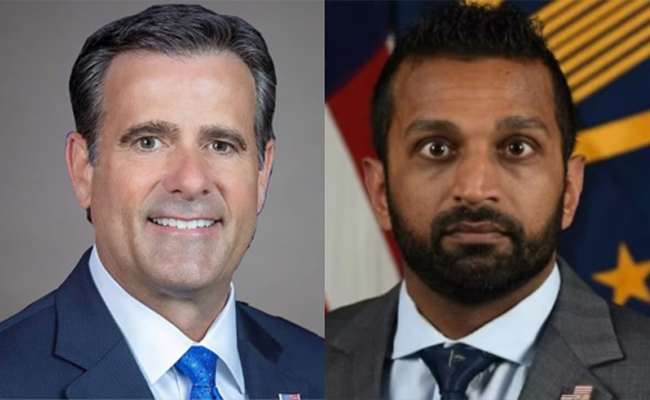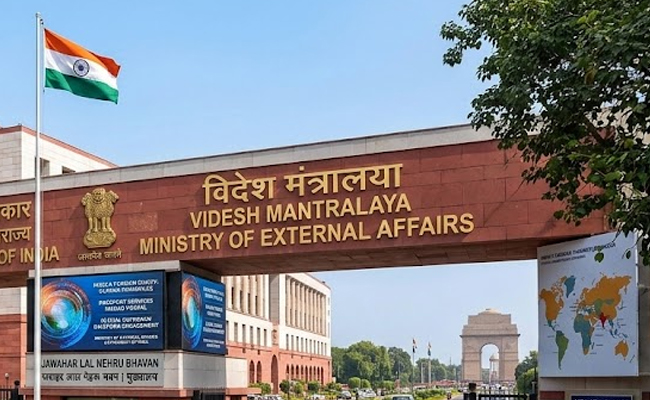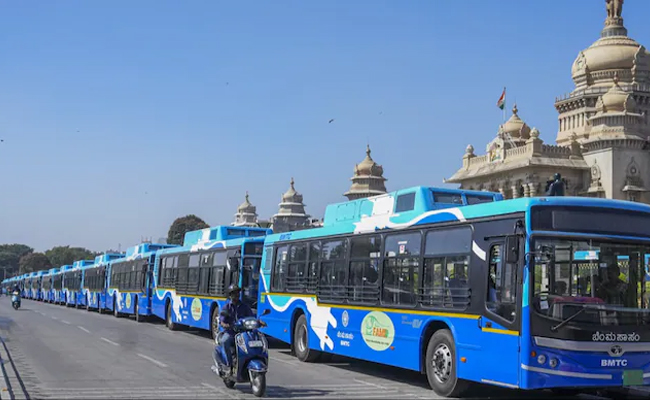Washington, Jan 29: The Trump administration imposed sanctions Monday on the state-owned oil company of Venezuela, a potentially critical economic move aimed at increasing pressure on President Nicolas Maduro to cede power to the opposition.
National security adviser John Bolton and Treasury Secretary Steven Mnuchin announced the measures against the company.
They are also aimed at boosting Maduro's rival, opposition leader Juan Guaido, whom the administration recognized last week as Venezuela's legitimate leader.
The sanctions will include a freeze on any assets the firm may have in US jurisdictions and bar Americans from doing business with it.
"The United States is holding accountable those responsible for Venezuela's tragic decline, and will continue to use the full suite of its diplomatic and economic tools to support Interim President Juan Guaido, the National Assembly, and the Venezuelan people's efforts to restore their democracy," Mnuchin said.
"Today's designation of PDVSA will help prevent further diverting of Venezuela's assets by Maduro and preserve these assets for the people of Venezuela. The path to sanctions relief for PDVSA is through the expeditious transfer of control to the Interim President or a subsequent, democratically elected government," he said.
PDSVA is the acronym for the state-owned oil company.
Senator Marco Rubio, a vocal critic of Maduro who has called for such sanctions, welcomed the move even before it was announced.
"The Maduro crime family has used PDVSA to buy and keep the support of many military leaders," Rubio said.
"The oil belongs to the Venezuelan people, and therefore the money PDVSA earns from its export will now be returned to the people through their legitimate constitutional government."
The sanctions will not likely affect consumer prices at the gas pump but will hit oil refiners, particularly those on the US Gulf Coast.
Venezuelan oil exports to the US have declined steadily over the years, falling particularly sharply over the past decade as its production plummeted amid its long economic and political crisis.
The US imported less than 500,000 barrels a day of Venezuelan crude and petroleum products in 2017, down from more than 1.2 million barrels a day in 2008, according to the Energy Information Administration.
Still, Venezuela has consistently been the third- or fourth-largest supplier of crude oil to the United States, and any disruption of imports could be costly for refiners.
In 2017, the most recent year that data were available, Venezuela accounted for about 6 per cent of US crude imports.
Valero and Citgo are among the largest importers of Venezuelan crude.
But Venezuela is very reliant on the US for its oil revenue. The country sends 41 per cent of its oil exports to the US.
Let the Truth be known. If you read VB and like VB, please be a VB Supporter and Help us deliver the Truth to one and all.
New Delhi (PTI): The Ministry of External Affairs (MEA) has set up a control room to assist those affected by the escalating crisis in West Asia.
The MEA has said almost one crore Indian citizens live in West Asia and their safety and well-being is of "utmost priority" for New Delhi.
As the Iran-US conflict widened, the Indian embassy in Iran moved hundreds of Indian students from the Iranian capital of Tehran to safer locations.
"A Control Room has been set up in the Ministry of External Affairs in view of the current situation in West Asia and the Gulf region," the MEA said on Wednesday.
"The Control Room can be contacted from 9 am to 9 pm at: 1800118797 (Toll Free) +91 11 2301 2113, +91 11 2301 4104, +91 11 2301 7905," it added.
The US launched military strikes on Iran on February 28, killing Iranian Supreme leader Ali Khamenei.
Following the military offensive, Iran has carried out a wave of attacks mainly targeting Israel and American military bases in several Gulf countries, including the UAE, Bahrain, Kuwait, Jordan and Saudi Arabia.
The MEA on Tuesday noted that almost one crore Indian citizens live and work in the Gulf region, and their "safety and well-being is of utmost priority."
"We cannot be impervious to any development that negatively affects them," it said.
The MEA said New Delhi will continue to closely monitor the evolving situation and take relevant decisions in the national interest, adding it is in touch with the governments in the region as well as other key partners.
A Special Control Room has been set up in the Ministry of External Affairs in view of the current situation in West Asia and the Gulf region. Details are as below ⬇️
— Randhir Jaiswal (@MEAIndia) March 4, 2026
🔗 https://t.co/nK3d6SY9Pa pic.twitter.com/v2EhUI5B1x




